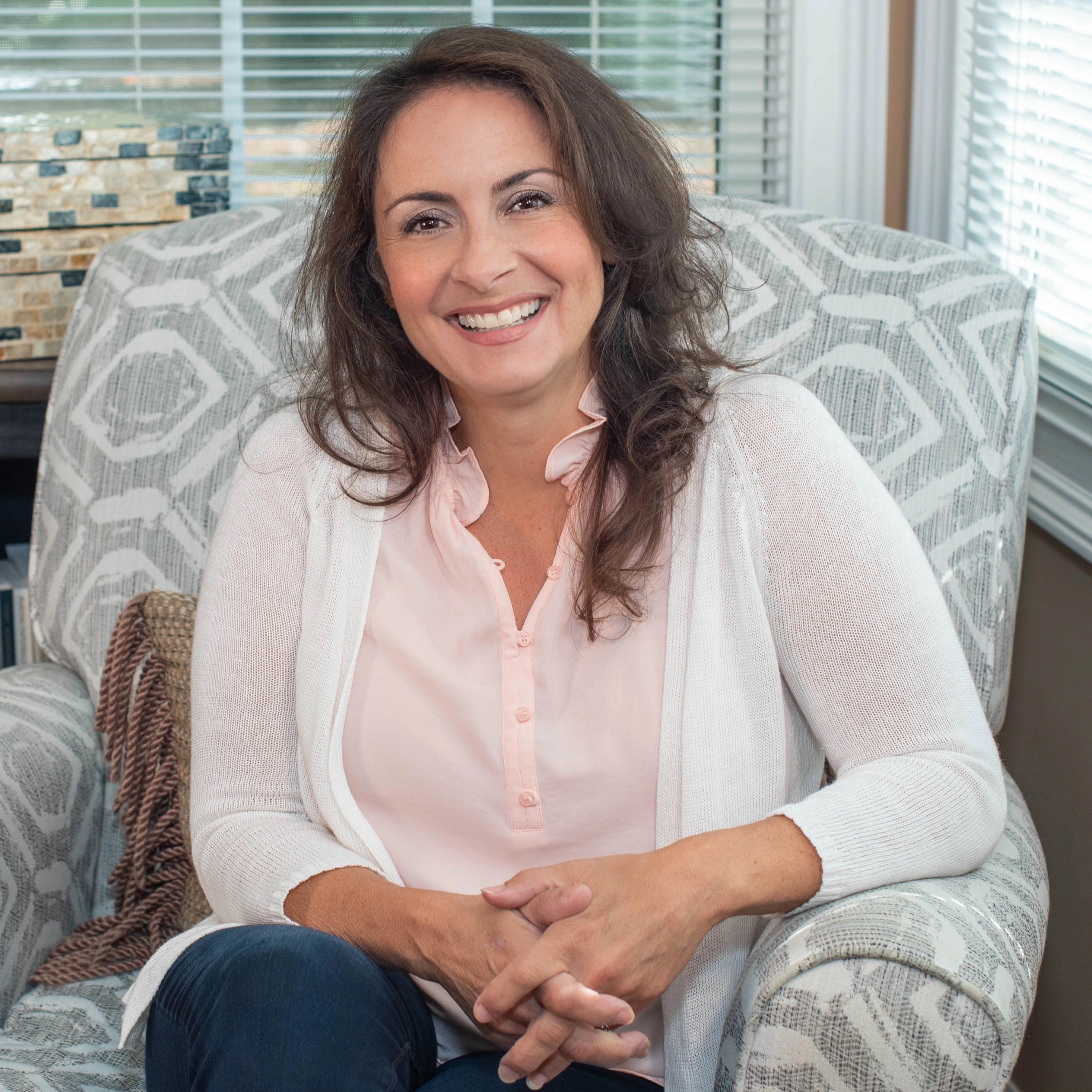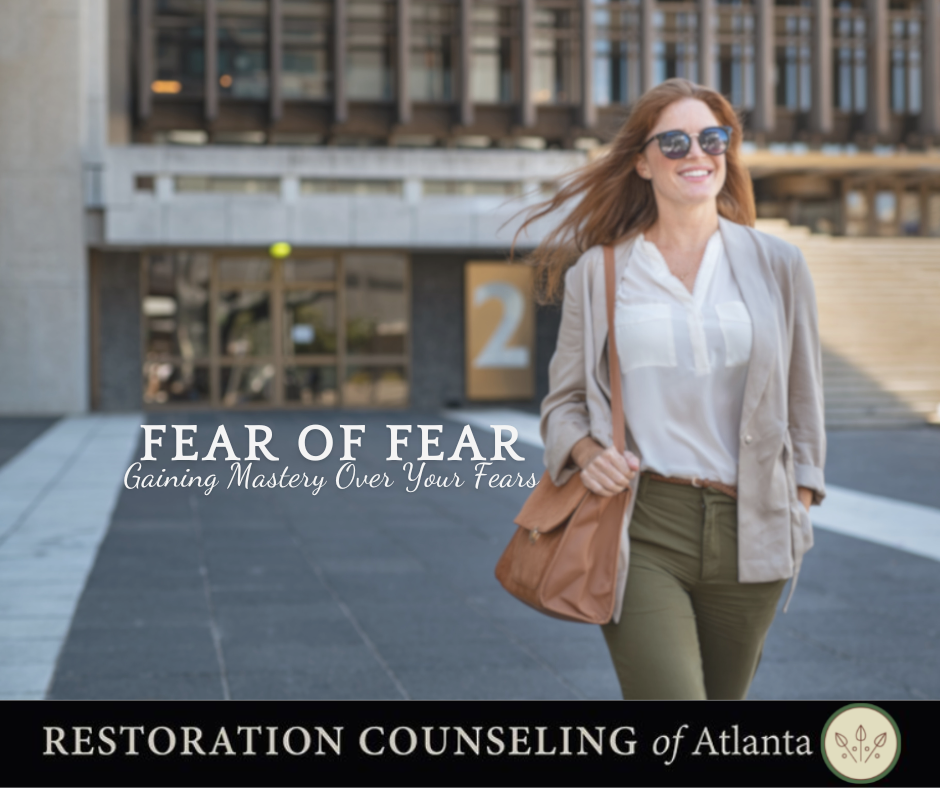In his first inaugural address of 1933, Franklin D. Roosevelt asserted the following about fear:
“… the only thing we have to fear is fear itself—nameless, unreasoning, unjustified terror which paralyzes needed efforts to convert retreat into advance.”
What is your experience with fear? Have you wrestled with her, overcome her at times, and at other times succumbed to her gravity?
Born Fearless?
It is fascinating to note that when we are born, we have very few natural fears. Humans exhibit a fear of loud noises and a fear of falling prior to any teaching or influence from parents or the environment. However, most other fears are learned.
One may reason from these facts that humans are designed to be nearly fearless! Yet, strikingly, human beings suffer from anxieties, fears, and phobias of various kinds pervasively and at significant levels. The NIMH reports that 19.1% of people in the United States currently suffer from anxiety disorders.
What Are Anxiety Disorders?
Anxiety disorders are a larger category of disorders which include:
- Panic disorder
- Social anxiety disorder
- Agoraphobia
- Generalized anxiety disorder (GAD)
- Separation anxiety disorder
- Selective mutism
- Phobias, Specific Phobia
Do I Have An Anxiety Disorder?
How do we know if our normal fears have increased to the level of a “disorder”? Merely because you are asking yourself this question does not mean you have a “disorder”. However, together, you and your counselor/therapist can help you determine if your fears have grown over time in an unhealthy way and achieved a debilitating level.
Generally, your symptoms and behaviors surrounding the fears must be out of proportion to the situation or age-inappropriate. Also, your symptoms (avoidance of fear-inducing things, panic, fight/flight/freeze response, etc.) must hinder your ability to function normally to merit the label “disorder.”
When we fear, are we cowards? Do we not “trust God enough?”
As we grapple to understand our fear and gain mastery over it, we often have an additional burden to overcome—ourselves. We can become our own worst enemies by leveling shame and accusations inward. We can negatively attack ourselves with the idea that we are “less than” or cowardly due to our experience of fear. It is important to understand that this type of self-judgment is unhelpful.
Shaming ourselves for having fears in this life usually adds to the burden of the fear that we already face. So, how do we coach ourselves (and each other) in these times of facing fears without shame and without giving in to them?
How do we handle ourselves as children of Sarah (1 Peter 3:6) and “not fear anything that is frightening”?
Core Beliefs about Fear
God created us to be the “crown of creation”—note the phrase “of creation.” We are part of the created order on Earth, and as part of this creation, we have the ability to learn and adapt. For example, when we get hit with a snowball, we duck the next time one comes at us. When we touch a hot iron and get burned, we learn not to touch it.
Overall, these learning responses that we exhibit through our behavior are positive, adaptive, and necessary. We must learn what will hurt us and how to keep ourselves safe. Understanding this is critical when viewing our fears.
As 1 Peter 3 acknowledges, there are things that frighten us in this life. That is normative. What the scripture is admonishing us to do is make choices in response to the frightening things that move us back toward our fearless origins. We desire to move closer to a state of freedom from fear. As FDR entreated the U.S. during the Great Depression and impending war, “to convert retreat into advance.”
If you take a careful look at the fears you have today, there is likely a set of experiences that led to their formation. Your “troublesome” fears that have grown to an irrational level were likely begun in a context where they made sense. Perhaps you learned that when a dog growled at you, that was the moment he was more likely to bite! This is a helpful lesson in many contexts. However, it ceases to be adaptive when it creates a paralyzing fear of all dogs that keeps a person from being able to ever leave the house or go near a park.
The nature of many of these learned responses is involuntary. Your heart rate increases, and blood moves to your limbs when you feel threatened. This response is meant to get you ready to fight or run away. You did not have to discipline your body to respond this way. The fight or flight instinct has “taken over” in some ways and bypassed your rational mind.
In this way, there is no room for shame, as your body is designed for self-protection and is fearfully and wonderfully made to survive. Your neurology is designed to “override” your rational brain at times to quickly extinguish and avoid threats.
It is wise to respect this about yourself and learn how to work with this neurological blueprint.
From Mystery to Mastery
The presence of fear is not a reason to shame yourself but to look closely, understand, and attempt to unravel its mystery. God has designed you to use your mind, spirit, body, emotions, and interpersonal connections to gain mastery over your fears.
Firstly, you can use your rational mind to understand the fears in context. All people have some experience of this in their lives. Children typically use their cognitive reasoning skills to coach themselves through their fear. For instance, a child afraid of roller coasters may think, “ I see people exiting the roller coaster alive and happy; therefore, I probably will be alive and happy”. Similarly, in therapy, counselors can use Cognitive Behavioral Therapy (CBT) to identify maladaptive beliefs and exchange/replace them with beliefs that support functional behaviors.
Secondly, you can use your spiritual resources to assist you in facing fears. For many of us, we fear things in life that may threaten our lives literally (venomous snakes, airplane crashes, illness, etc.). Underneath these phobias and fears is often a fear of death itself. Death is the last great enemy we face on this earth and is a formidable foe. Many people find that when they acknowledge death as a “conquered foe” in the spiritual world, the other fears begin to lose their power over their lives.
I do not mean to describe this process of accepting death flippantly or casually. The spiritual process of accepting one’s death or simply the reality of death can be a mammoth obstacle in this life. However, it is mentioned here as an essential task for every human being. When a person has accepted death at a deep level, it does impact their fears and overall anxiety. Further, God’s promise to always be present with his people is often a comforting spiritual precept that supports us in times of great fear. He does not abandon us in these fearful encounters, whether in death or when facing lesser threats.
Thirdly, as your body has a neurological blueprint that follows a predictable pattern in fearsome times, you can jump-start your more rational responses through biological means. Some body movements can be used to activate your parasympathetic nervous system. Breathing, exercising, relaxation exercises, hugs, massage, and other means use your body itself to communicate to your nervous system that it is ok to relax. In cases where people do not respond to these techniques, medications can be used to adjust the neurological signals that are putting the body into fight or flight (the panic response) at unwanted times. This is a decision to discuss with your doctor.
Fourthly, our human emotions are a means by which we gain mastery over fear. How can this happen? Emotions are to be accepted but not always obeyed. What this means is that we are to become experts in knowing, reading, and acknowledging our own emotions. When we have the emotion of fear, we are to respond not with denial and/or shame but with acceptance, understanding, and, finally, action. Emotions are helpful ways of making us aware that something is happening or that something must happen. They tell us to pay attention and require us to incorporate them as data into our next move. The fact that we feel fear, even though it feels negative and intense, is NOT a negative thing. We should learn to welcome feelings like fear but then learn to manage it.
Finally, God has given us each other to depend on in life’s most frightening times. An embrace and the presence of others are balm and safety to our souls. The fear we experience is meant to show us that we need each other. We are designed to live through the threats of this life together. God gives us each other to walk through the fear and give each other a visible safe place until “our faith shall be sight.”

Written by: Nancy Messner
nancy@restorationcounselingatl.com
678-534-3824, ext.130
Nancy (Buckhead, Woodstock, Roswell, and online) has a passion for working with individuals and families as they strive to face life’s challenges. She has been married for 28 years to a pastor, and they have five children (ages 12-23). Nancy offers an objective, understanding, and non-judgmental atmosphere where individuals and families can work on healing and growing under the light of God’s truth. She received her training from Wheaton College in 1999, further graduate work at Liberty University, and has lived in Atlanta for eleven years.

